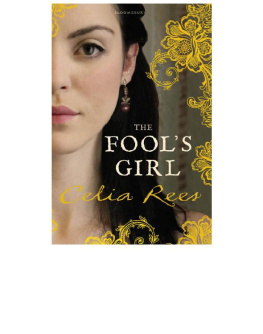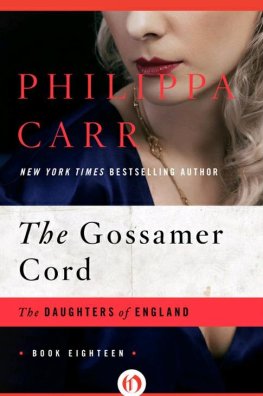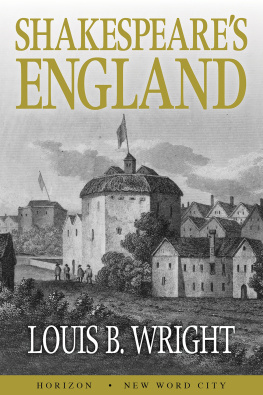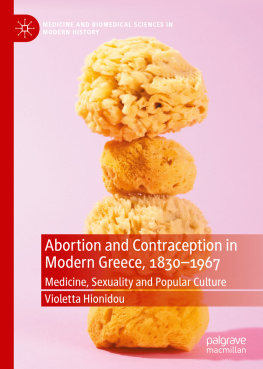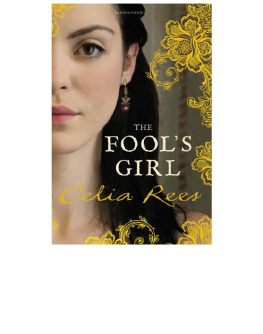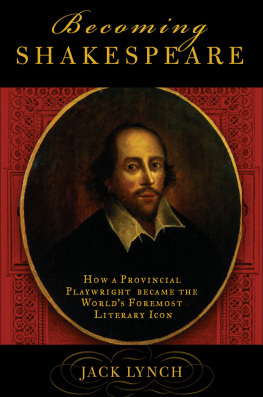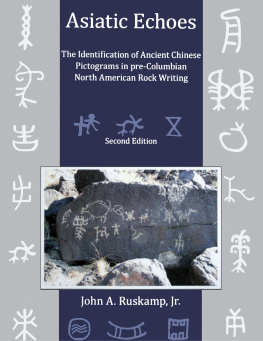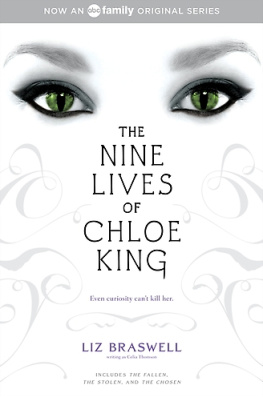.
ACKNOWLEDGEMENTS
I am most grateful to the Shakespeare Birthplace Trust and the Globe Theatre for their thoughtful and illuminating displays of Shakespeares life and work and for the helpfulness of their staff. Further afield, I would like to thank the staff at the Museum in Dubrovnik and the Ducal Palace in Mantua. I have seen some wonderful productions of Twelfth Night over the years staged by the Royal Shakespeare Company, but I am most indebted to York University Drama Society for their exuberant and spirited outdoor production, which I saw one hot summer day by the river in Stratford and started me thinking, what if...
There are very few indisputable facts known about the life of William Shakespeare. Even the date of his birth is uncertain. I have ventured an explanation that, since nobody knows, is as valid as any. Much of his life is open to speculation in this way, which leaves the writer a certain latitude. Despite this lack of documented detail, very many books have been written about him. It is impossible to list all the books that I have consulted, but I am grateful for the scholarship and insights offered by the following writers: Germaine Greer, Shakespeares Wife (Bloomsbury, 2007), Jonathan Bate, Soul of the Age (Viking, 2008), Peter Ackroyd, Shakespeare: The Biography (Chatto and Windus, 2005) and James Shapiro, 1599 (Faber and Faber, 2003). Also, Leslie Hotson, The First Night of Twelfth Night (Rupert Hart-Davis, 1954), George Morley, Shakespeares Greenwood, (David Nutt At the Sign of the Phoenix, 1900). For other aspects of Elizabethan life: Judith Cooks Roaring Boys Shakespeares Rat Pack and her book on Doctor Simon Forman. The A to Z of Elizabethan London , compiled by Adrian Proctor and Robert Taylor was as invaluable as its modern counterpart. For Illyria, I made considerable use of guidebooks for Croatia and Dubrovnik, Venice and the Italian City States, but I also found Jan Morriss The Venetian Empire very helpful, Mary McCarthys Florence and Venice Observed (Penguin Classics, 2006) and Rebecca Wests account of her travels in Yugoslavia: Black Lamb and Grey Falcon (Macmillan, 1942).
.
Also by Celia Rees
Witch Child
Sorceress
Pirates!
Sovay
.
Author Note
Twelfth Night is my favourite Shakespeare play. The plot has similarities to GlIngannati , a story by Matteo Bandello, but it is not quite the same. If Shakespeare did borrow the tale, he turned it into something else, with different characters, in a different time and setting. I was caught by the idea of Illyria, not just as a fantasy world, but as an actual place. What could happen to these people if Illyria was a real country on the Adriatic Sea? What might happen in Illyria after the end of Shakespeares play?
To tell the story in the way I wanted, Shakespeare would have to be in the book. In the past I have avoided including real historical figures, especially the very famous, who have libraries of books written about them. There are few absolute facts about Shakespeares life. This allowed me to think that I could include him in the story. I wanted to write about Shakespeare before he was Shakespeare, when he was just Will from Warwickshire, trying to make a living in the competitive and precarious world of Elizabethan Theatre.
To write a book that includes such a revered and famous figure is still a daunting prospect. My agent, Rosemary Sandberg, gave me the extra impetus to do it. She loves Twelfth Night as much as I do and loved the idea. I am grateful for her enthusiasm and encouragement, not just for this book, but for all the others. This book is for her.
.
What country, friends, is this?
London, 22nd April 1601
VIOLETTA
Have you seen a city under sack? Have you seen what happens there? Have you seen the blood, heard the screaming, smelt the smoke on the wind?
I stood on the battlements and watched them coming. Venetians and Uskok pirates, the scum of the sea, combined together to attack our fair city. I saw the red flash of the guns, the white smoke, felt walls shudder. I saw ships rammed; blown to splinters. I saw tall galleys spew fire that spread over the decks in a blazing carpet, turning men into torches and sails into ragged flags of flame. The burning ships ran on, setting fire to others until our fleet was nothing but smoking hulks set to spin in the powerful current like blackened walnut shells.
Still they came on. Platforms built on towers above the prows of the leading galleys brought the invaders level with us on the battlements. We kept up a hail of stones and arrows but the big ships came in a long line, each platform linked with its neighbour. You could run from one end of the fleet to the other. Those Venetians are clever. The ships rammed against the walls, grounding themselves on the rocks, bringing their forces eye to eye with ours. Men leaped off the platforms and on to the battlements, letting rope ladders down to be caught by those below. Soon men were crawling up the walls in black swarms.
From the landward side, balls of fire rained down on the city, destroying houses and churches. The roofs were obscured by rolling smoke; flames shot upwards and tiles fell in a dreadful scurrying clatter, muffling the screams of those caught inside to burn alive.
The citys walls were breached. The gates lay open. Enemy forces poured in, driving the people up the Stradun. The wide central thoroughfare was already jammed with all those trying to escape the ring of trampling booted feet, the swing and slash of the sword blade. The crowds were forced into the main piazza, caught like fish pursed up in a net. They would find no sanctuary in the cathedral. The great west door lay in splinters. Vestments were strewn about, defiled and discarded. Pages of sacred texts blew around and stuck in the crooked streams of blood that were trickling down the steps to pool on the white marble pavement. Once the piazza was full, the killing began. The separate wails of grief, sobbing and pleading became one constant scream.
FESTE
I took her. I dragged her from the battlements. She wanted to stay, to fight to the end, but her father the Duke ordered her away. He knew that there would be no mercy. He did not want to see his daughter raped in front of him until they put out his eyes. He sent his page, young Guido, with us, not wanting to see the same thing happen to him.
We went down into the cellars. From there I hoped to take one of the tunnels that led out to the ramparts, but from the direction of the walls came the rumble of rolling barrels. The vermin were already down there. Sappers, busy with gunpowder, getting ready to blast their way up into the tower.
I led them up into air thick with the smell of burning flesh and ash falling like snow. The fight had moved on, the streets were deserted, but they were not empty, if you get my meaning, and there was no way for me to shield her. Shes seen sights that no girl of her age should ever have to see. Theres a madness takes men over. No one had been spared. Men cut down where they stood, women raped and left for dead, children and babies chopped and butchered. Only the animals were still roaming about, and the less said about that...
We couldnt get out of the city. We were trapped like rats in a granary. Ever seen terriers sent in to clear them? They kill until they are staggering, then they kill some more.
In the east, a womans high keening stopped abruptly. In the west, the sky glowed with more than the sunset. The Dukes palace on fire. There were still shouts and screams, but they were becoming scattered and sounded distant. There was a lull while the Venetians and pirates got busy looting or broke open barrels in the inns and taverns, but the looting would finish when there was nothing left to steal, and then they would be out on the street again, this time drunk, and the slaughter would go on until there was nothing left to kill.
Next page
